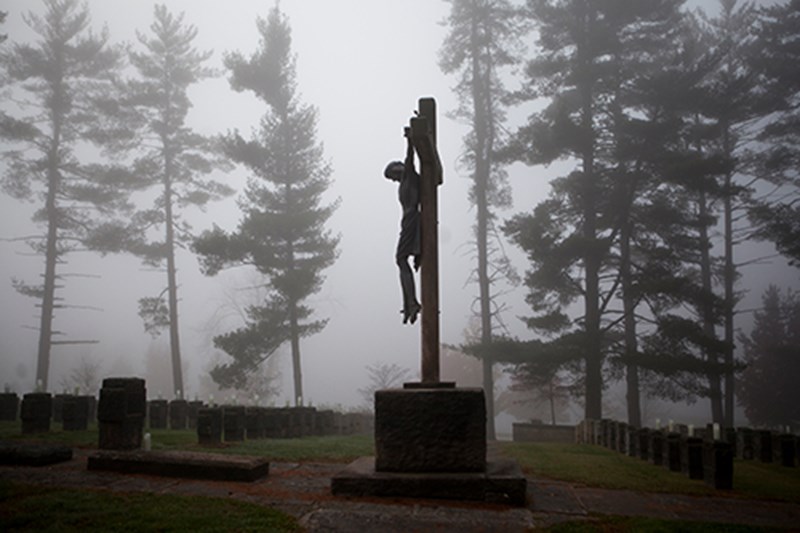Good Zeal
Fr. Adrian Burke, OSB
Thursday, April 7, 2022

“Just as there is a wicked zeal of bitterness which separates from God and leads to hell, so there is a good zeal which separates from evil and leads to God and everlasting life.”
Rule of Saint Benedict 72:1-2
Every human life entails some measure of suffering – loss, illness, disappointments, failures, and death. As Christians, our witness to Christ and his gospel demands we make sense of human suffering. We do this for ourselves, first, so we can avoid the “wicked zeal of bitterness” that hardens the heart and renders the soul virtually incapable of genuine concern for others. Self-pity hoards suffering as if it was a secret treasure. The soul poisoned by self-pity relishes its bitterness, which fosters resentment and the passive aggressive behavior so deleterious to healthy relationships and community. In the end, bitterness leads to isolation and loneliness – after all, who wants to be around a bitter, resentful person?
Those motivated by “good zeal” are transfigured by suffering. With compassion (the word literally means “to suffer with”) and a generous heart, they help carry the burdens suffered by others, turning suffering into an opportunity for love. The “way” we suffer can make all the difference as to whether life is more like a foretaste of heaven or the isolation of hell.
The Trappist monk and writer Thomas Merton reflected on the role of suffering in the Christian life. He wrote that, “The effect of suffering upon us depends on what we love. If we love only ourselves, suffering is merely hateful … one who loves only him/ herself will commit any sin and inflict any evil on others merely to avoid [their own] suffering.” Suffering can lead to such an intense focus on the self that we forget that when we suffer, we do not suffer alone. The light of faith is needed here.
As Christians, we believe that we belong to the “body of Christ,” baptized into the death of the Lord (Rom 6:3) that we might also share in his risen life. What we suffer, then, belongs to the whole Body of Christ – to all of us! When we understand that our own personal suffering is a participation in the suffering-Christ who, out of love for the world, took upon himself our human nature in his Body, then we might be able to glimpse something of the power our suffering has as a personal contribution to Jesus’ mission of redemption!
This way of suffering, and of understanding it, transforms suffering – just as Jesus transformed death by suffering it. So, when we offer our personal pain and suffering conscientiously and deliberately for others – for friends, family, and neighbor – we’ve united our suffering to that of Jesus Christ. Let this good zeal, which leads to God and separates from evil, give rise to compassion in your heart and not bitterness, that your earthly life might be a delightful anticipation of the Heavenly Realm and eternal life.